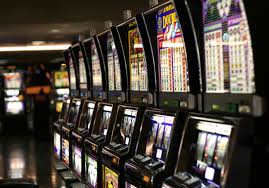Explore the mathematics behind roulette wheel probability. Learn how odds, strategies, and online games influence your chances of winning.
Introduction
Roulette, often called the queen of casino games, is thrilling and visually captivating. Players place bets on numbers, colors, or combinations, watching as the ball spins and lands unpredictably. While the game appears purely based on luck, mathematics and probability play a crucial role in understanding and improving your chances of winning.
In the era of Dis88 online games, understanding the underlying math is more relevant than ever. Both casual players and serious enthusiasts benefit from knowing probabilities, expected values, and betting strategies to make informed decisions. This article delves into the mathematics behind roulette, highlighting probabilities, game variations, and practical tips for players.
Understanding Roulette Wheel Layouts
Roulette wheels come in two main types: American and European.
European Roulette
- Numbers: 1–36 plus a single zero (0)
- Total pockets: 37
- House edge: Approximately 2.7%
American Roulette
- Numbers: 1–36 plus 0 and 00
- Total pockets: 38
- House edge: Approximately 5.26%
The number of pockets directly affects probabilities. For example, betting on a single number in European roulette gives you a 1/37 chance of winning, while in American roulette, it’s 1/38.
Basic Probability in Roulette
Probability measures the likelihood of an event occurring. In roulette, probabilities vary depending on the type of bet.
Single Number Bet
- European roulette: 1/37 ≈ 2.70% chance
- American roulette: 1/38 ≈ 2.63% chance
Color Bet (Red or Black)
- European roulette: 18/37 ≈ 48.65% chance
- American roulette: 18/38 ≈ 47.37% chance
Even/Odd Bet
- Same probability as color bets due to equal distribution of numbers.
Dozens and Columns
- European roulette: 12/37 ≈ 32.43% chance
- American roulette: 12/38 ≈ 31.58% chance
Understanding these probabilities is crucial for selecting bets and assessing risk.
Expected Value in Roulette
The expected value (EV) indicates the average amount a player can expect to win or lose per bet over the long term.
Formula:
EV=(Probability of Winning×Payout)+(Probability of Losing×Loss)EV = (Probability\ of\ Winning \times Payout) + (Probability\ of\ Losing \times Loss)EV=(Probability of Winning×Payout)+(Probability of Losing×Loss)
For a single-number bet in European roulette: EV=(137×35)+(3637×−1)=−0.027EV = \left(\frac{1}{37} \times 35\right) + \left(\frac{36}{37} \times -1\right) = -0.027EV=(371×35)+(3736×−1)=−0.027
This negative expected value (-2.7%) represents the house edge, showing that over time, the casino is statistically favored to win.
Comparing American vs. European Roulette
The difference in house edge between American and European roulette highlights the importance of game selection:
- European roulette: Lower house edge (2.7%) offers better odds for players.
- American roulette: Higher house edge (5.26%) makes winning less likely over time.
For both casual and online players, choosing European roulette whenever possible maximizes potential returns.
Common Betting Strategies
While no strategy can overcome the house edge, probability knowledge allows for structured betting approaches.
1. Martingale System
- Double your bet after every loss, aiming to recover losses with one win.
- Works best with color or even/odd bets.
- Risk: Requires unlimited bankroll; losing streaks can be costly.
2. Fibonacci System
- Bet following the Fibonacci sequence (1, 1, 2, 3, 5…).
- Recover losses gradually using smaller increments.
- Less aggressive than Martingale but still risky.
3. D’Alembert System
- Increase bets by 1 unit after a loss, decrease by 1 after a win.
- Moderates risk compared to Martingale.
These strategies rely on probability and statistical patterns but cannot change the long-term house edge. They help manage bets and add structure to gameplay.
Roulette and Online Games
Online roulette offers additional advantages for probability-conscious players:
- Play for Free: Practice strategies without financial risk.
- Simulations: Observe patterns and test betting strategies.
- Live Dealer Games: Realistic casino experience with digital convenience.
- Flexible Betting: Adjust limits based on bankroll and risk tolerance.
Online platforms allow beginners and experienced players alike to explore probability in action while refining their strategies.
Key Tips for Players
- Understand the odds: Know the probability of each bet type.
- Choose European roulette: Lower house edge improves long-term odds.
- Set a bankroll: Stick to limits to enjoy the game responsibly.
- Avoid risky bets like Tie: High payouts carry much lower probability.
- Practice online: Use free games to test strategies and gain confidence.
Conclusion
Roulette is a fascinating blend of chance and mathematics. While luck determines each spin, understanding probabilities and expected values empowers players to make informed betting decisions. Mini-strategies like the Martingale, Fibonacci, or D’Alembert system can structure gameplay, but knowledge of the house edge and odds remains key.
In both physical casinos and online games, mastering the mathematics of roulette enhances enjoyment and decision-making. For enthusiasts looking to explore this classic table game, learning probability is the first step toward smarter betting.
Support the community of players who appreciate the balance of skill and chance in roulette, and celebrate the thrill of every spin in your league today.



